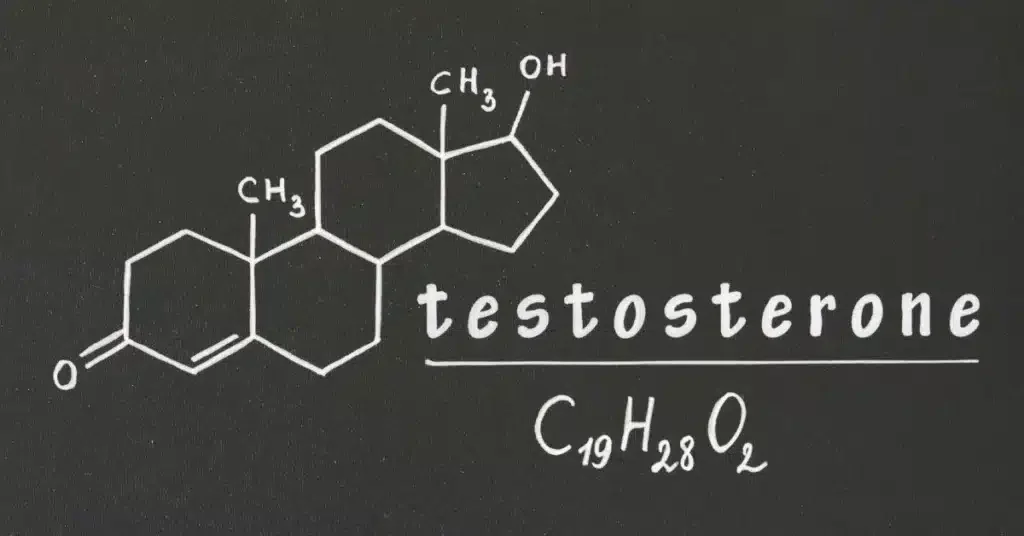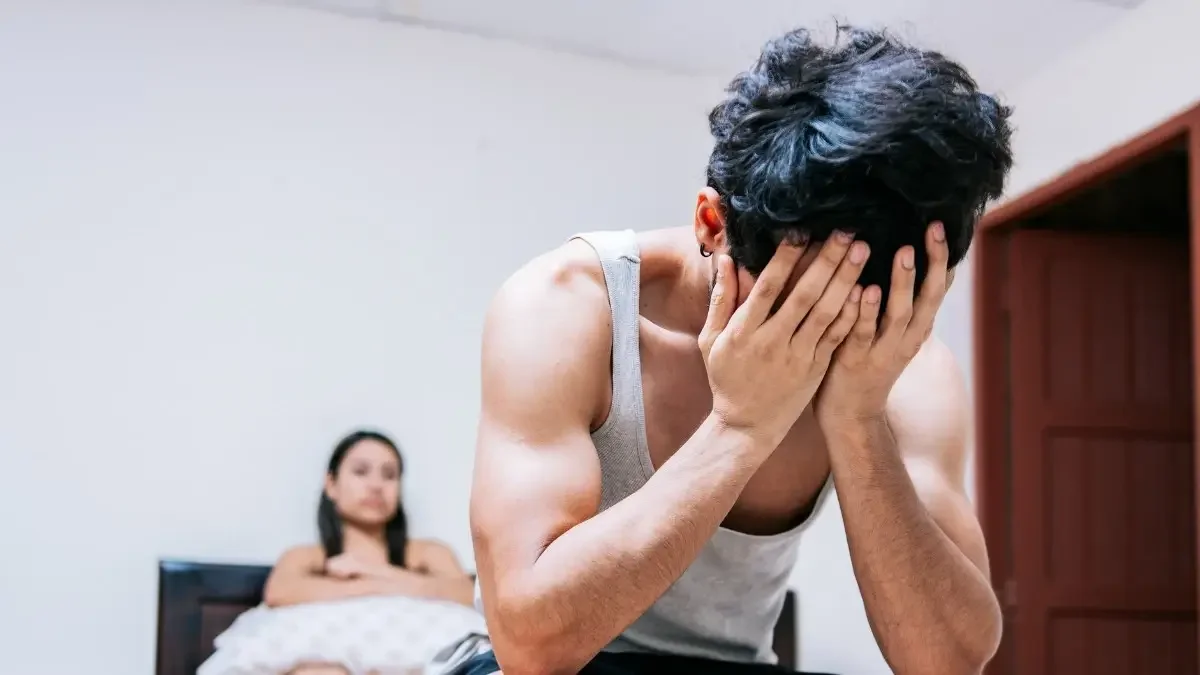Low libido in men is often a drop in sexual desire or interest, and can affect their well-being and intimate relationships.
While low libido is a Sexual Dysfunction that many men encounter at some point in their lives, it may suggest underlying health issues requiring care.
In this article, we will discuss the many causes of low libido in men and effective treatments that can help restore healthy sexual desire.
What causes low libido in men
A lack of interest in sexual activities or a diminished desire for sexual closeness defines low libido.
While libido changes are common, constant low libido can cause relationship dissatisfaction and tension.
Low libido affects men of all ages, and knowing its origins is critical to developing effective treatments.
Hormonal imbalance, psychological factors, certain illnesses, medication, and lifestyle factors are common causes of low libido in men.
Hormonal imbalances
 Source: GreenApple78_From_Getty_Images
Source: GreenApple78_From_Getty_ImagesHormonal imbalance can lower a man’s sexual drive and libido. Libido is regulated by testosterone.
Due to aging, stress, and certain medical conditions, testosterone levels might reduce, resulting in low libido.
Hormonal changes affect the brain’s receptivity to sexual cues and the body’s ability to arouse.
Men can improve their sexual health and libido by identifying and correcting hormonal problems using hormone replacement therapy.
Psychological factors
Psychological factors might cause low libido in men. Stress, Anxiety, and Depression reduce sexual desire and interest.
Emotional issues can impair the brain’s sensitivity to sexual cues, decreasing desire to have sex.
Performance Anxiety or unresolved relationship issues might reduce sexual attraction.
Bad self-esteem and body image can also influence a man’s bedroom confidence.
Therapy, counseling, and open communication can help men regain sexual desire and health.
Medical conditions
Medical problems might lower men’s libido and sexual desire.
Diabetes, Obesity, heart disease, and Thyroid diseases influence hormone levels and blood flow, thus affecting libido.
Fatigue and overall well-being from the nervous system or chronic pain disorders might lower libido.
Men can improve their libido and sexual health by managing and treating certain medical issues and discussing prescription changes with a doctor.
Medications
Men’s libido can drop with medications. Medicines like antidepressants, antihistamines, and blood pressure meds may impair sexual desire and function.
Sexual arousal neurotransmitters can be affected by antidepressants. Antihistamines may reduce sexual desire and sleepiness.
Erections can be tougher to achieve and maintain with blood pressure medicines.
If you feel like a medicine is responsible for low libido, or if you are experiencing low libido after starting a new medicine, you should discuss it with your doctors.
Lifestyle factors
Lifestyle factors can drastically affect a man’s libido. Tobacco, alcohol, and an inactive lifestyle can lower sexual desire.
Smoking and alcohol reduce blood flow which can also affect erections. Inactivity lowers testosterone levels which is a major cause of low libido.
High sugar and processed food intake can also disturb hormonal balance and libido.
Men’s libido and sexual health can increase with regular exercise, a balanced diet, less alcohol, cigarettes, and stress management.
Treating low libido
A man’s low libido can be caused by various causes, resulting in a complex problem that often goes undiagnosed.
These factors can broadly be divided into physical and psychological causes, with some people experiencing a combination of both.
Some of the most common libido treatment methods for men are listed below
Hormone Replacement Therapy: If hormonal imbalances, particularly low testosterone levels, are identified as the cause of low libido, hormone replacement therapy (HRT) may be prescribed to restore hormonal balance.
Counseling and therapy: Psychological concerns such as stress, anxiety, or depression are frequently addressed through therapy or counseling. Speaking with a specialist can assist guys in overcoming emotional barriers that limit their sexual desire.
Medical adjustments: Consultation with a healthcare provider to amend or replace prescriptions may be advantageous if drugs are considered to be the cause of low libido.
Lifestyle changes: A better lifestyle might have a substantial impact on libido. Regular exercise, a healthy diet, avoiding drinking and cigarettes, and controlling stress can all help to boost sexual desire.
Conclusion
 Source: GoodLifeStudio_from_Getty_Images_Signature
Source: GoodLifeStudio_from_Getty_Images_SignatureIn conclusion, low libido in men is a complex issue influenced by physical, psychological, medical, and lifestyle factors.
Understanding the various causes is essential for finding effective treatments and lifestyle adjustments to address this concern.
Men can boost their libido and sexual health with hormone replacement treatment, counseling, prescription changes, or a healthier lifestyle.
Addressing the cause of low libido can help improve relationships and fosters a sense of overall well-being and confidence.
If you experience persistent low libido you must consult a doctor to identify and address any underlying health conditions.
Open communication and seeking appropriate help can lead to a more fulfilling and satisfying sexual life.
Frequently Asked Questions
What is low libido in men, and when should it cause concern?
Men with low libido lack sexual desire and interest. Libido variations are normal, but if a man persistently lacks sex interest for a long time, it may be a problem. Seek medical help if decreased libido affects intimacy, self-esteem, or relationships.
What common physical factors can lead to low libido in men?
Physical causes such as hormonal imbalance, medical condition etc.,can lower men’s libido. Low testosterone levels, especially, can contribute. Diabetes, Obesity, and heart disease impact sexual desire. Antidepressants and blood pressure medicines can lower libido. Lifestyle variables like smoking, drinking, and sedentary behavior can also affect sexual drive.
How do psychological factors, such as stress and anxiety, contribute to low libido?
Stress and worry can reduce sexual desire. Emotional anguish, sadness, and mental health concerns can also affect men’s sexuality. Performance anxiety and unresolved relationship issues may lower libido. Counseling and stress management can boost libido by improving psychological well-being.
Can certain medical conditions or medications affect a man’s sexual desire and lead to low libido?
Yes, medical issues might alter men’s sexual drive. Diabetes, heart disease, and thyroid diseases can affect hormonal balance and libido. Chronic pain and neurological system disorders may indirectly diminish sexual desire due to exhaustion and well-being. Antidepressants, antihistamines, and blood pressure medicines can also lower libido.
What lifestyle changes can men make to improve their libido and overall sexual health?
Healthy living improves libido and sexual health. Exercise boosts testosterone and blood flow. A diet containing fruits, vegetables, and lean proteins can help hormonal balance.
Reducing alcohol, cigarettes, and stress with meditation and yoga can boost libido. Good interpersonal communication, counseling for psychological disorders, and medication modifications with a doctor can boost sexual desire and well-being.
When referencing outside resources, GoodrxMedicine always provides full citations. To learn more about the measures we use to maintain the quality of our content, please review our Content Information Policy.





